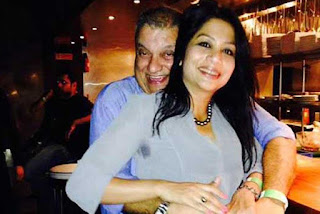Algerian journalist Khaled Drareni, who was sentenced to three years in prison by an Algiers court last month, was re-sentenced to a reduced prison term of two years on September 15, Tuesday, following an appeal. This was announced in a statement released by the National Committee for the Release of Detainees.
Drareni was arrested on March 29 while he was covering the anti-establishment Hirak (movement) protests that have swept Algeria for over a year. He was charged with “inciting an unarmed gathering” and “endangering national unity”, as well as for criticising Algerian president Abdelmadjid Tebboune and the government on social media. He had called out the government for widespread corruption and political mismanagement of the country, which were the primary causes for the rise of the Hirak protests. Drareni had also expressed solidarity with the Hirak protesters and encouraged them to continue the protest until they achieve their goals of political, social and economic reform in Algeria.
Last week, @TLHumanRights Co-Chairs @RepMcGovern and @RepChrisSmith wrote to the Algerian Ambassador expressing their concerns for press freedom in #Algeria and calling for the unconditional release of journalist #KhaledDrareni. #Journalismisnotacrime https://t.co/ULDN5YajUG
— Tom Lantos Human Rights Commission (@TLHumanRights) September 17, 2020
Chekib Drareni, Khaled’s brother, denounced the court’s judgement, saying in a tweet that he is “disgusted, shocked and disappointed by the court’s decision, which once again reinforces injustice in Algeria.” Drareni’s lawyer, Mustapha Bouchachi, told reporters that the defense team now intends to appeal to the Algerian supreme court. Several international press freedom and human rights organisations, including Reporters Without Borders (RSF) and Amnesty International, also condemned the court’s judgement.
RSF secretary general, in a statement responding to the verdict, said, “We are outraged by the blind stubbornness of the Algerian judges who have just condemned (Drareni) to 2 years in prison. Khaled’s detention proves the regime locks itself into a logic of absurd, unfair and violent repression.” Amnesty International demanded the unconditional release of Drareni and other activists, lawyers, journalists and political prisoners who are being unjustly detained by government authorities.
An international campaign launched to secure Drareni’s release has organised rallies in cities in multiple countries in the last few weeks. Journalists affiliated to the National Khaled Drareni Support Committee organised a rally on September 14, Monday, at the Tahar-Djaout press house in Algiers. Journalists have been gathering at the press house for the last three weeks in support of Drareni and to demand his release. Similarly, French journalists staged a rally last week outside the Algerian embassy in Paris to apply international pressure on the Algerian government. Tunisian journalists also demonstrated in front of their union’s headquarters on the same day to show their solidarity and support for Drareni and demand his release.














